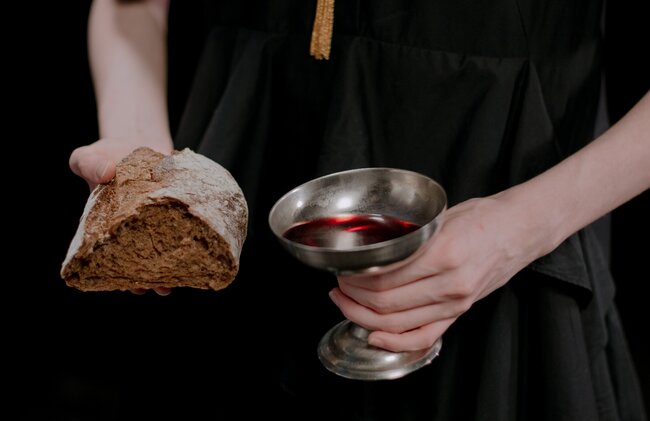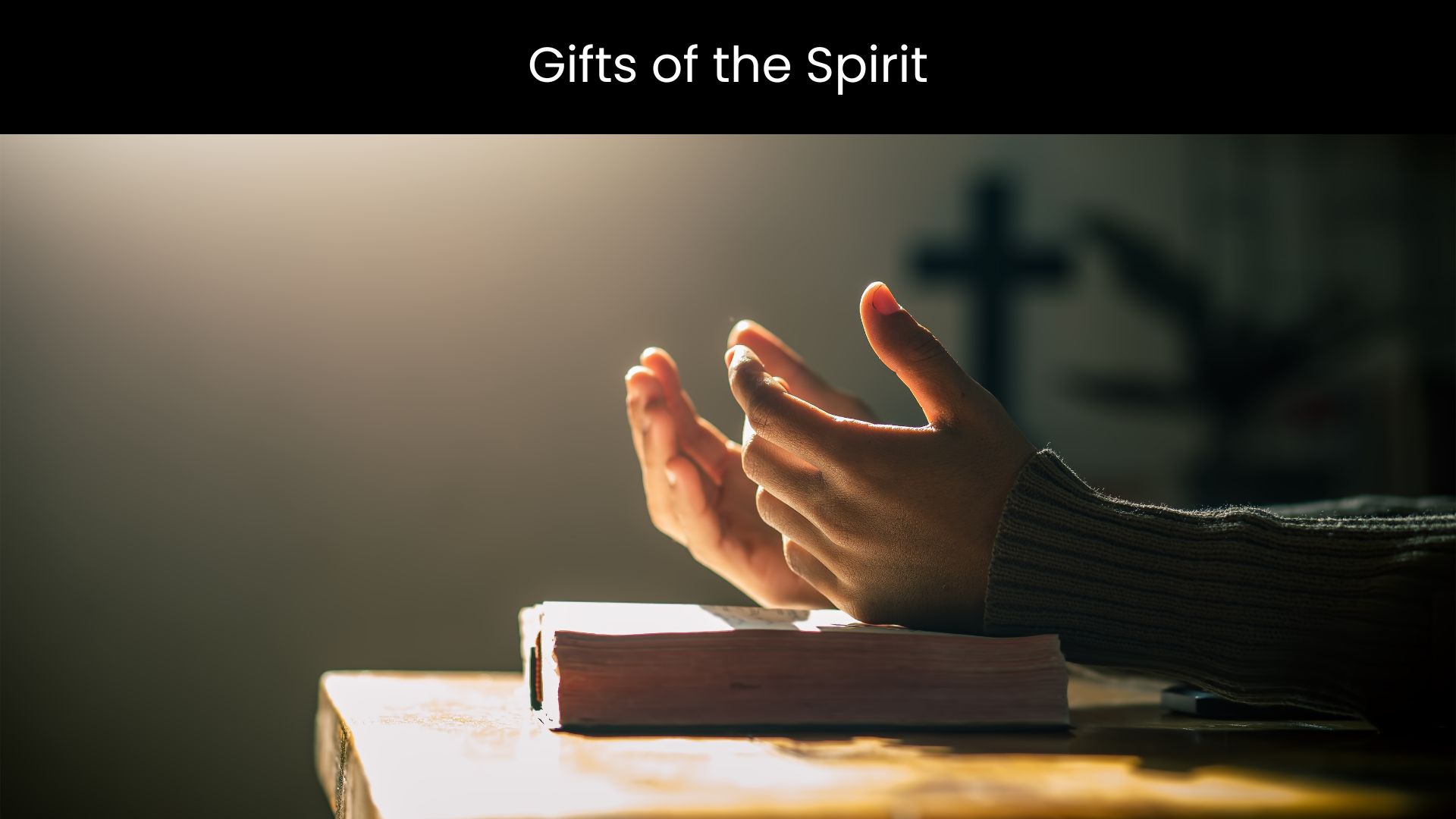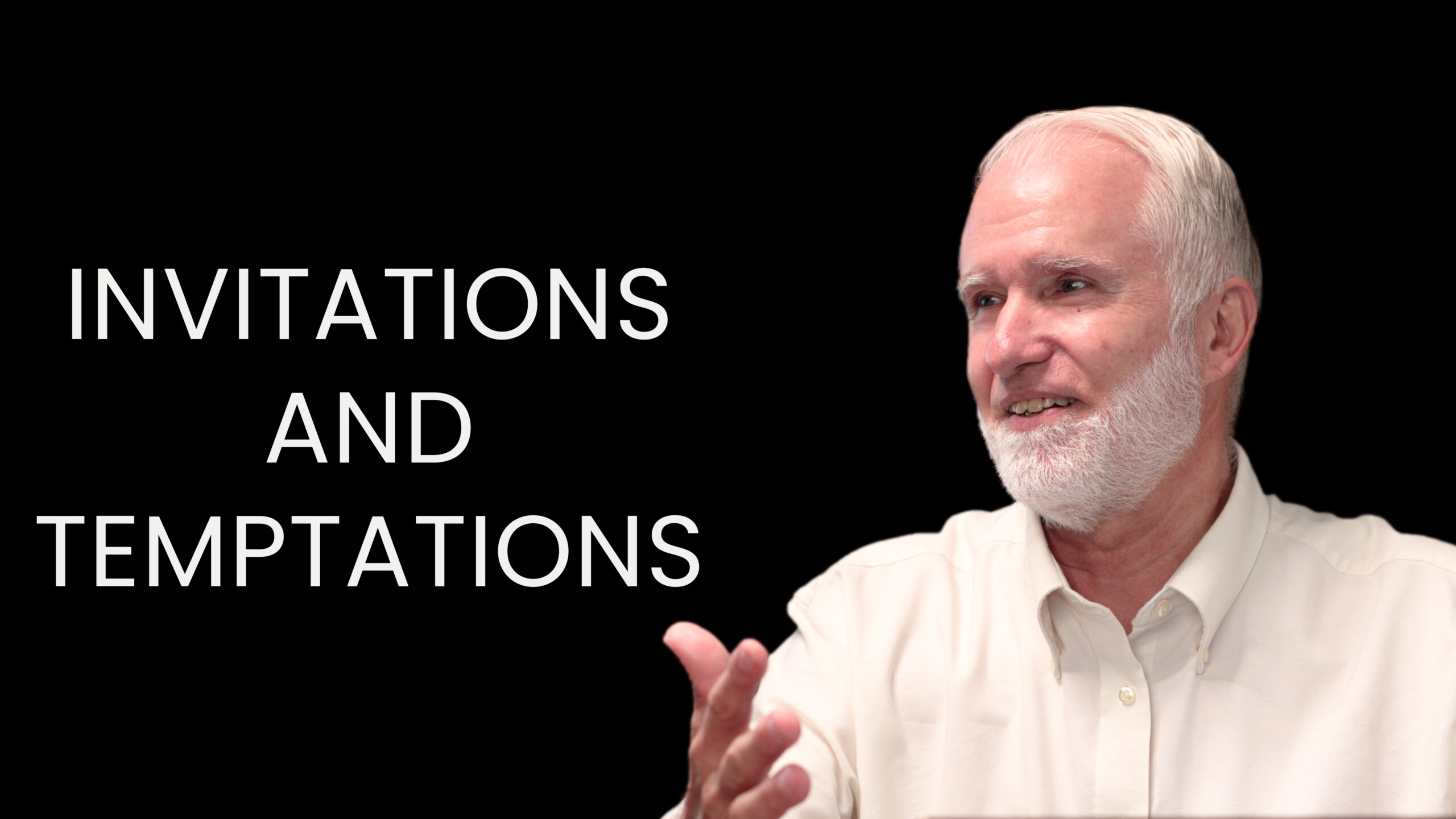What happens at the Lord’s supper? What is the nature of this important Christian practice? Understandings vary widely. One view of the supper, which I consider both extreme and oversimplified, is that the loaf and cup become literally the body and blood of Christ. Another extreme and oversimplified view claims that the supper is only an act of remembrance.
Let me hasten to say that it is only the extremes that I reject. I believe the loaf and cup are the body and blood of the Lord, just not literally so. Similarly, the supper clearly is a memorial act, but it is not only that. In the supper we encounter Christ. We can refer to the supper as the Lord’s table because it is a place of fellowship provided by Christ. Another common name for the supper is “communion,” which is another word for fellowship sometimes used to translate the Greek term koinonia in 1 Corinthians 10:16.
Paul’s teaching about the Lord’s supper as fellowship in 1 Corinthians 10 gives us a key to a richer, more adequate picture of how we encounter Christ in the supper. But first, we need to think a bit more about the two oversimplified, extreme views and why they distort the Lord’s supper.
On the positive side, the literal view of communion as Christ’s body and blood is an attempt to take seriously His words “This is my body.” It also emphasizes that Jesus is genuinely present in the supper. The biggest problem with this view, as I see it, is that it makes things too mechanical. If the bread, once consecrated, becomes in and of itself the body of Christ, that makes Christ present even apart from faith and belief in Christ. An unbeliever, or even an infant with no understanding would be partaking of Christ, simply by virtue of eating. This belief that the bread is actually Jesus has sometimes resulted in strange practices designed to force-feed people Christ through the communion bread. It also sometimes makes people worry about what happens to crumbs or leftovers, since they are quite literally pieces of Jesus’s body.
No doubt, some Christians who believe Christ’s body is literally present in the supper can, and do, give more sophisticated explanations. They could argue that the bread is Christ’s body only for those who come with faith, or other similar ideas. I will not go into detail about why I would not agree with that belief, except to say that I think we can make good sense of what it means to partake of Christ’s body and blood without thinking of the bread and wine as literal parts of Jesus’ physical organism.
The memorial view is often seen as the opposite of the literal view, and it does seem to promote an opposite misunderstanding. Of course, the Lord’s supper is an act of remembrance. The problem is that a crude version of the memorial view sees the Lord’s supper as nothing but obeying a command of Jesus to remember his death in a certain way. This does not explain how we encounter Christ in the supper. Of course, Christ is always present with believers whether we are taking communion or working on the most mundane task, and Christ delights in obedience to all of his commands. But in the supper, we encounter Christ in a special way; one that is obscured when we insist it is nothing but a memorial of Christ’s death.
I suggest the bare memorial view of communion is linked to two tendencies. The one tendency is discomfort with the wording of Jesus’s statements about his body and blood. The other tendency is to be comfortable skipping communion for long periods of time. This shows up in our willingness to go without communion because we are sick or traveling when communion is offered in our home congregation. It also shows up in our willingness to go long amounts of time because, for whatever reason, we are not part of a communing body in the area where we live. Now if, as the crude memorial view says, communion is just an act of obedience then this would make some sense. So long as the ritual is performed often enough that we are not disobeying any New Testament commands, all would be good.
Such an attitude downplays the importance of the Lord’s supper in the life of the saints. The examples we have in the New Testament, and the testimony of church history, show the Lord’s supper as a central part of the life of the church. Furthermore, the Lord’s table is to be an important part of our fellowship with Christ and with one another.
The apostle Paul teaches that the Lord’s supper is koinonia in the body and blood of Christ. Our traditional term “communion” derives from that. A more recent rendition is “participation.” A participation in the body and blood of the Lord. This points the way to a fuller understanding of the encounter with Christ in the Lord’s supper.
The teaching about fellowship is found in the New Testament book that has perhaps the most to say about the supper: 1 Corinthians. Chapter 11 provides the famous and classic passage where Paul recounts the words of the Lord at the last supper and then takes the Corinthian church to task for their abuse of the practice. The supper is referenced earlier in the letter as well. In chapter 5 he stresses the necessity of purging “old leaven” from the church by refusing to associate with greedy, sexually immoral, or slanderous people. Excommunication is a broader affair than simply denying the sinner the Lord’s Supper, but the passage seems to emphasize communion with its Passover imagery and comparison of the church to a lump of dough. Then chapter ten begins with a comparison between the supper and God’s provision of water and manna for the Israelites in the wilderness.
Later in chapter 10 we see the Lord’s supper described as communion, which is to say fellowship or participation. What Paul is doing in this passage is comparing the Lord’s supper to both Old Testament feasts and to idolatrous pagan feasts. While his main point is to impress on his readers the serious evil of idol worship, the passage has much to teach us about the Lord’s supper.
Consider first of all verses 16-19: the cup of blessing that we bless is a fellowship in the blood of Christ; the bread we break is a fellowship in the body of Christ. (Taking part together of the one loaf also makes us one as Christ’s body.) In a similar way offering sacrifices in the Old Testament made them “partners of the altar.” In the same way people who offer sacrifices to idols become partners with demons. Liturgical, worshipful practices are not mere symbols or ceremonies. They involve fellowship, participation, and partnership with the beings we worship.
The Lord’s supper is a relational act. Verses 21 and 22 drive this point home. “You cannot drink the cup of the Lord and the cup of demons. You cannot partake of the table of the Lord and of the table of demons. Or are we trying to provoke the Lord to jealousy?” The table and the cup are the Lord’s and he wants to share them with us.
Paul’s accounting of pagan sacrifices in the course of chapters 8-10 explains how they function as fellowship with demons. I think it is also helpful for understanding the Lord’s supper. Paul makes it clear that a piece of meat does not become contaminated simply because it has been consecrated to an idol. A Christian can take a piece of meat from the market that was previously sacrificed to an idol and eat it in gratitude to God (10:25-30). The meat does not literally become something evil and idolatrous; it is only evil when the one eating it is participating with demons. In the same way, I would submit, the communion emblems do not literally become Christ’s body and blood; they can only be called that when we are participating in the Lord’s supper. If we give away the leftovers to an unbeliever, that will not mean that he is eating the body and blood of the Lord (literally or otherwise).
There is a danger here though, of an inappropriate sort of spiritualizing. We are tempted to think that the real issue is some internal mental or spiritual attitude. Someone might say that he can attend a pagan offering while keeping his heart pure from idolatry. But that is not Paul’s point. He is ok with eating meat that someone else consecrated to an idol in the past. But he is very concerned about people participating or appearing to participate in the liturgical act of consecrating that meat. In a similar way we may be tempted to say that the important thing is that we partake of Christ in a mental or spiritual fashion, and that the liturgical act of the Lord’s supper is just a symbol of that inner reality. We should not admit such a divorce. True, if someone does not know that anyone has given thanks over the cup, then he does not participate with Jesus by drinking it. But when a believer calls us to partake, this is Christ calling us to partake, not merely a symbol of our internal, mental partaking.
This is brought out by the fact that it is possible to eat and drink the Lord’s supper to our own condemnation and not only to our blessing. Even if our hearts are drastically in the wrong, when we dabble with the Lord’s Supper we dabble with Christ—to our peril. In chapter 11 Paul claims the Corinthians observance could be more accurately called a bunch of suppers of their own rather than the Lord’s supper. But he still warns them of judgement because they eat and drink without discerning the body, meaning thereby both the body broken on the cross and the body of believers. In their abuse of the supper, they still encountered Christ at His table, but it was an encounter, not of blessing, but of condemnation.
We could explore the Lord’s supper from many other angles. Remembering, covenant, eucharist or thanksgiving, the eating and drinking of John 6, the Lord serving us at his table, sharing the cup of suffering, and the “horizontal” fellowship with fellow believers, all call out for meditation and reflection. All of these themes add depth and dimension to our appreciation of the Lord’s supper. Communion with the Lord Jesus is a wondrous thing indeed.








1 comment
Sean
Hello, Brother Marlin thanks for the post.